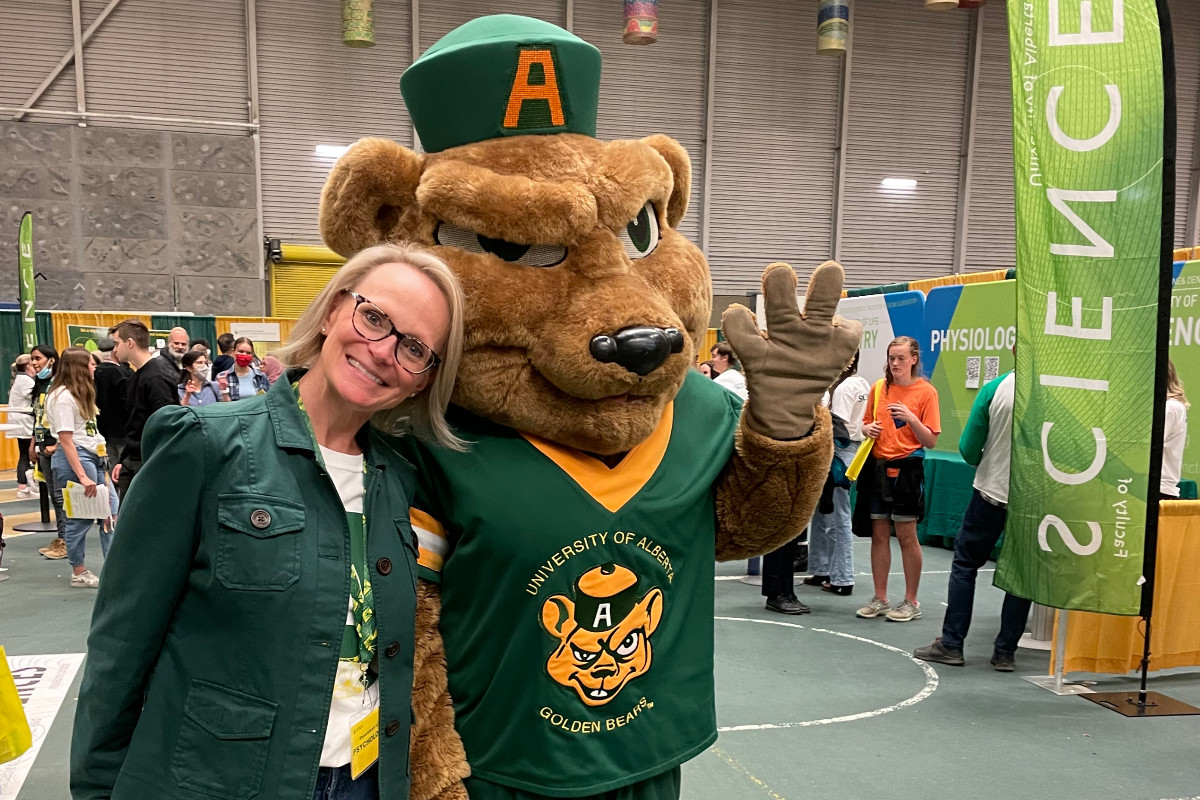Deanna Singhal appointed Associate Dean (Teaching and Learning)
Donna McKinnon - 09 February 2023

New associate dean (teaching and learning) Deanna Singhal, from the Department of Psychology
Deanna Singhal joins the leadership team in the Faculty of Science to serve a three-year term (with an option for a two-year extension) as associate dean (teaching and learning). In this new role, Deanna will be a key member of the deanery, supporting the faculty’s instructors in carrying out their teaching responsibilities as we move to streamline and simplify our operations. In addition to her contributions to the faculty, she will remain an active member of her home department in both teaching and learning.
Deanna has been a faculty service officer in the Department of Psychology for seven years and has conducted research in the areas of human performance, cognitive workload, and more recently, social learning theory, as it applies to the influence of media on driving behaviour. She is a member of the Associate Chair (Undergraduate Studies) Committee, and chair of the Psychology Articulation Committee for the Alberta Council on Admissions and Transfer. She also serves as a member of the U of A Psychology Undergraduate Advisory Committee.
Congratulations Deanna!
What excites you most about taking on this new role, particularly as it’s focused on undergraduate education?
I am excited to meet and work with more members across the different departments in the Faculty of Science. My work in the Department of Psychology has already exposed me to some amazing people in Science, who truly care about providing an excellent teaching and learning experience. I also look forward to being a part of the collaborative approach the faculty takes to solving problems, and assisting instructors and students. My undergraduate experience was not a straight path from beginning to end. There were ups and downs, changes in programs, and extra time required to complete my degree. Though there were struggles, my experience taught me that stepping off the planned pathway can lead to new discoveries. I am excited to be part of a faculty that cultivates curiosity and exploration in students.
Although it’s early days, as you understand it, what are the expectations for this position and what are the challenges, and/or what do you hope to achieve over the next few years?
My new position will take responsibility for the portion of that portfolio that works with classroom issues, such as assisting instructors with queries about policy-related matters (e.g., course syllabi, accommodations), assessing grade appeals, and disseminating important information about things such as course structure, grade submissions, and deferred exams. I will also work with teaching and learning groups at the faculty and college level to help promote development within our programs. My hope is to create a strong thread of communication with our members, and provide a pool of accessible and helpful resources that will be beneficial for the teaching experience. The initial challenge will be confronting new queries that I am not familiar with, but the best part will be networking with others to find the answers!
Please describe your current research. How will this new role affect your teaching and research?
My most recent research investigated the influence of media, particularly the movie Furious 7, on speeding behaviour in the City of Edmonton. Working with the Office of Traffic Safety, a time series approach demonstrated that the release of this movie was related to an increase in the number of speeding infractions during opening weekend. In addition, those caught speeding were driving faster than those caught on a typical weekend in Edmonton. I continue to discuss the issue of modelling aggressive driving with research groups interested in advocating for safer streets. My teaching will continue, though the additional workload of my new role will reduce that somewhat.
What drew you to this area of research?
In 1998, during my PhD, I worked as a project scientist with NASA to investigate the influence of weightlessness on visual motor coordination in astronauts. This York University project flew aboard the Space Shuttle Columbia as part of the Neurolab mission, which was dedicated to research investigating the nervous system. From there, my interest in cognitive workload led me to driving research, and the consideration of cell phone use while driving. I worked as a research associate with the Traffic Injury Research Foundation in Ottawa for a few years, investigating a variety of aspects that influence driving behaviour. My recent research focused more on Social Learning Theory, and how models in our environment can influence our attitudes, beliefs, and behaviours associated with driving.
What do you do for fun, outside of work?
I like to be active, which often involves taking our yellow lab, Luna, for walks in the great dog parks in the city. I have particularly enjoyed skating at Hawrelak and Victoria Park this winter during the milder days. I love to cook and bake, as it helps me unwind and be creative. As a family, we love watching movies, and are quite the Marvel and Star Wars fans. Our annual Halloween costumes often reflect that!